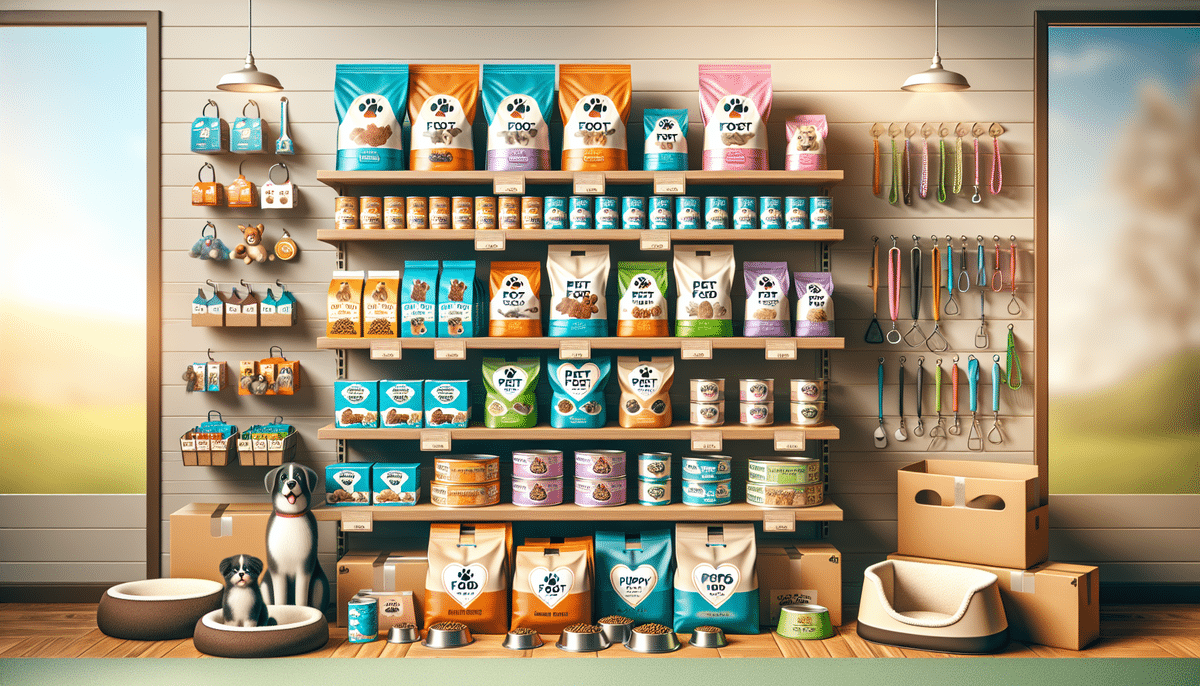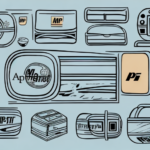A Comprehensive Guide to Pet Food and Supplies Fulfillment
If you are a pet owner, you understand the critical role that proper nutrition and quality supplies play in ensuring your furry friend's health and happiness. With an overwhelming array of options available, selecting the right pet food and supplies can be challenging. This comprehensive guide provides detailed insights into pet food and supplies fulfillment, covering everything from choosing the appropriate products to storing them correctly and ensuring timely replenishment.
The Importance of Choosing the Right Pet Food and Supplies
Your pet's nutrition is fundamental to their overall well-being, influencing aspects such as digestion, energy levels, skin and coat health, and long-term vitality. According to the American Veterinary Medical Association, a balanced diet tailored to your pet's specific needs can significantly enhance their quality of life.
When selecting pet food, consider your pet's age, breed, and any existing health conditions. For example, senior pets may benefit from food with lower calories and higher fiber to maintain a healthy weight, while pets with allergies might require specialized diets. Opting for high-quality food with real ingredients, such as meats and whole grains, over fillers and by-products is essential for optimal health.
How to Evaluate Your Pet's Nutritional Needs
The nutritional requirements of pets vary widely based on factors like breed, age, size, and activity level. Puppies and kittens, for instance, have higher calorie needs to support growth, whereas senior pets may need diets that address age-related health issues. Consulting with your veterinarian can provide personalized recommendations based on your pet's specific characteristics.
Consider your pet's activity level when evaluating their nutritional needs. Highly active pets may require more protein and carbohydrates to sustain their energy, while less active or sedentary pets might benefit from a lower-calorie diet to prevent obesity.
Always read the ingredients list on pet food labels carefully. Avoid products containing fillers, artificial preservatives, and by-products. Look for high-quality protein sources such as chicken, fish, or lamb, and whole grains like brown rice or quinoa. Additionally, supplements like omega-3 fatty acids or probiotics can support your pet's overall health and well-being.
- Consult with a veterinarian for personalized dietary advice.
- Choose foods with high-quality protein sources.
- Avoid fillers and by-products in pet food.
- Consider adding supplements to your pet's diet.
Common Misconceptions About Pet Food and Supplies
There are numerous misconceptions surrounding pet food and supplies that can lead to confusion and poor choices. One prevalent myth is that more expensive pet food brands always guarantee better quality. In reality, price does not necessarily equate to quality. It's crucial to evaluate the ingredient list and nutritional information rather than relying solely on the price tag.
Another misconception is that human foods are safe for pets. Many human foods, such as chocolate, onions, and grapes, are toxic to pets. Always consult with a veterinarian before introducing new foods into your pet's diet.
Additionally, some pet owners believe that all pets require the same type of food. This is not the case, as different pets have varying nutritional needs based on their breed, age, and activity level. Personalized diets are essential for maintaining your pet's health.
Finally, the idea that homemade pet food is always better is misleading. While homemade diets can be beneficial, they must be carefully balanced to meet all of your pet's nutritional requirements. Improperly formulated homemade diets can lead to nutritional deficiencies and health issues.
Understanding the Different Types of Pet Food and Supplies
Pet food and supplies come in a wide variety of types to cater to different pets' needs and health requirements. From kibble and canned food to raw diets and specially formulated diets, there are numerous options available. Similarly, essential supplies range from standard items like food bowls and leashes to specialized products such as grooming brushes, dental chews, and interactive toys that support your pet's physical and mental health.
When choosing pet food, it’s important to consider your pet's specific needs. For example, senior pets may require food with lower calories and higher protein to maintain muscle mass, while pets with allergies may need diets free from certain ingredients. Always consult with your veterinarian to determine the best food for your pet's individual requirements.
In addition to food and supplies, providing your pet with regular exercise and mental stimulation is crucial. Daily walks, playtime with toys, and training sessions not only keep your pet physically healthy but also improve their behavior and overall well-being.
Tips for Choosing High-Quality Pet Food and Supplies
Selecting high-quality pet food and supplies is essential for maintaining your pet's health. Here are some tips to help you make informed choices:
- Ingredient Quality: Look for brands that use real meat and natural ingredients instead of fillers and by-products.
- Safety Standards: Ensure that supplies are made with non-toxic materials and meet safety standards.
- Consult Reviews: Reading reviews from other pet owners can provide insights into product effectiveness and durability.
- Vet Recommendations: Consulting with your veterinarian can help you choose the best options for your pet's specific needs.
When selecting pet food, always consider your pet's dietary needs, such as allergies or sensitivities. The age and activity level of your pet also impact their nutritional requirements, so read labels and ingredients carefully to ensure appropriate nutrition.
For pet supplies, choose items that are suitable for your pet's size and breed. For example, a small dog may need a different type of collar or leash compared to a larger dog. Additionally, consider the durability of supplies, especially if your pet is highly active or tends to chew. Investing in high-quality supplies can save you money in the long run by reducing the need for frequent replacements.
Top Brands in the Pet Food and Supplies Industry
The pet food and supplies market is populated with numerous reputable brands, each offering unique products tailored to different pet needs. Leading brands like Royal Canin, Hill's Science Diet, and Purina provide a wide range of premium food options designed to meet various pet requirements.
In the supplies category, brands such as Chewy, PetSmart, and Amazon offer an extensive selection of supplies from leading manufacturers, ensuring that you can find exactly what your pet needs.
Additionally, there are smaller, niche brands that focus on specific dietary needs or pet preferences. For instance, Blue Buffalo and Wellness offer natural and organic food options, while Orijen and Acana specialize in high-protein, grain-free diets. Researching and selecting a brand that aligns with your pet's specific needs and preferences is crucial for their health and satisfaction.
The Pros and Cons of Buying Pet Food and Supplies Online
Online shopping for pet food and supplies has surged in popularity, driven by the convenience and vast selection it offers. However, it’s important to weigh the advantages and disadvantages before making your purchases.
- Pros:
- Convenience: Shop from the comfort of your home at any time.
- Variety: Access a broader range of products, including specialty items not available locally.
- Price Comparison: Easily compare prices and find the best deals.
- Home Delivery: Receive products directly at your doorstep, saving time and effort.
- Cons:
- Product Quality: It can be challenging to assess the quality of products without seeing them in person.
- Shipping Delays: Time-sensitive deliveries may sometimes be delayed, impacting your pet's supply needs.
- Cost of Shipping: Additional shipping fees can increase the overall cost of your purchases.
- Return Policies: Returning items can be more complicated compared to in-store returns.
Despite these drawbacks, the benefits of online shopping, such as access to a wider range of products and competitive pricing, make it a popular choice among pet owners. To mitigate the cons, consider ordering from reputable retailers and checking reviews before making a purchase.
How to Save Money on Your Pet's Food and Supplies
Pet ownership can be expensive, especially when it comes to high-quality food and supplies. However, there are several strategies to help you save money without compromising on the quality of care you provide.
- Look for Sales and Discounts: Take advantage of seasonal sales, bulk purchase discounts, and promotional offers from retailers.
- Subscription Services: Many online retailers offer subscription services that provide discounts and free delivery on regular orders.
- Buy in Bulk: Purchasing larger quantities can reduce the cost per unit and decrease the frequency of orders.
- Generic Brands: Consider opting for generic or store brands, which often offer similar quality at a lower price.
- Homemade Food: Preparing homemade meals can be cost-effective, but ensure that the diet is balanced and meets all nutritional requirements by consulting with a veterinarian.
Another effective way to save money is by purchasing second-hand pet items. Many pet owners sell gently used items such as crates, beds, and toys online or at local garage sales. Additionally, organizations like pet food banks or donation programs offer free or low-cost food and supplies to pet owners in need.
The Benefits of Shopping Local for Your Pet's Food and Supplies
Shopping locally for your pet's needs not only supports your community but also offers several distinct advantages:
- Personalized Service: Local pet stores often have knowledgeable staff who can provide personalized advice and recommendations tailored to your pet's specific needs.
- Faster Delivery and Returns: Purchasing from nearby stores can result in quicker access to products and more straightforward return processes.
- Support for Local Economy: Buying from local businesses helps sustain the local economy and fosters community relationships.
- Access to Locally Made Products: Local stores may carry unique, locally made products that are not available in larger chains or online.
Essential Supplies for Different Types of Pets
The essential supplies required for pets vary based on their species, size, and lifestyle. Here are some examples:
- Dogs: Collars, leashes, food and water bowls, beds, crates, and toys.
- Cats: Litter boxes, scratching posts, food and water bowls, beds, and interactive toys.
- Small Animals (e.g., rabbits, ferrets): Appropriate housing, bedding, food dishes, and exercise wheels.
- Fish: Aquariums, water filtration systems, water conditioners, and appropriate decorations.
Ensuring that you have the right supplies for your specific type of pet is crucial for their comfort and well-being. Always research the specific needs of your pet and invest in high-quality products that meet those requirements.
Understanding Labels on Pet Food and Supplies Packaging
Reading and understanding labels on pet food and supplies packaging is vital for making informed decisions about what you provide to your pet. Here are some key points to consider:
- Nutritional Information: Look for labels indicating complete and balanced nutrition, which ensures that the food meets the dietary requirements for your pet's life stage.
- Ingredient List: Prioritize products that list specific ingredients, such as chicken, beef, or salmon, rather than vague terms like "meat by-products."
- AAFCO Statement: The Association of American Feed Control Officials (AAFCO) provides standards for pet food labeling. Look for a statement that confirms the food meets these standards.
- Safety Certifications: For supplies, check for safety certifications or compliance with relevant standards to ensure the products are safe for your pet.
Understanding these labels helps ensure that you are providing high-quality, safe, and nutritious products for your pet.
How to Store Your Pet's Food and Supplies Properly
Proper storage of pet food and supplies is essential to maintain their quality and effectiveness. Follow these guidelines to ensure your pet's items remain in optimal condition:
- Pet Food: Store in a cool, dry, and dark place to preserve freshness and prevent spoilage. Use airtight containers to protect against pests and moisture. Avoid storing food in areas with extreme temperatures, such as garages or direct sunlight.
- Supplies: Keep items like collars, leashes, and toys in a designated, clean space away from heat and humidity to prevent deterioration. Regularly inspect supplies for signs of wear and replace them as needed to ensure safety.
Proper storage not only extends the shelf life of pet food and supplies but also ensures that your pet continues to receive the best care possible.
The Importance of Regularly Replenishing Your Pet's Food and Supplies
Regularly replenishing your pet's food and supplies is crucial to maintain their health and comfort. Here's why:
- Health Maintenance: Consistently providing fresh, high-quality food ensures your pet receives the necessary nutrients to stay healthy.
- Preventing Interruptions: Regularly restocking supplies like litter, chew toys, and grooming tools prevents disruptions in your pet's routine care.
- Expiration Management: Monitoring expiration dates on food packages and replacing expired items helps avoid the risks associated with spoiled or ineffective products.
Set reminders or create a replenishment schedule to ensure that you never run out of essential items for your pet. This proactive approach helps maintain your pet's well-being and prevents last-minute rushes to replace needed items.
Common Mistakes to Avoid When Purchasing Pet Food and Supplies
Avoiding common mistakes can significantly impact your pet's health and comfort. Here are some pitfalls to watch out for:
- Buying Low-Quality Products: Low-quality food can contain harmful ingredients that may lead to health issues, while inferior supplies can cause discomfort or injury.
- Improper Feeding: Overfeeding or underfeeding can lead to obesity or malnutrition. Always follow feeding guidelines and adjust based on your pet's specific needs.
- Neglecting Consultations: Failing to consult with a veterinarian can result in unsuitable dietary choices and unmet nutritional requirements.
- Ignoring Individual Needs: Each pet is unique. Ignoring specific needs based on breed, age, or health conditions can adversely affect your pet's well-being.
By being aware of these common mistakes and taking steps to avoid them, you can ensure that you are providing the best possible care for your pet.
Investing in the right food and supplies is an investment in your pet's long-term health and happiness. Regularly assess your pet's changing nutritional and supply needs, and make informed choices to support their thriving and joyous life.






















